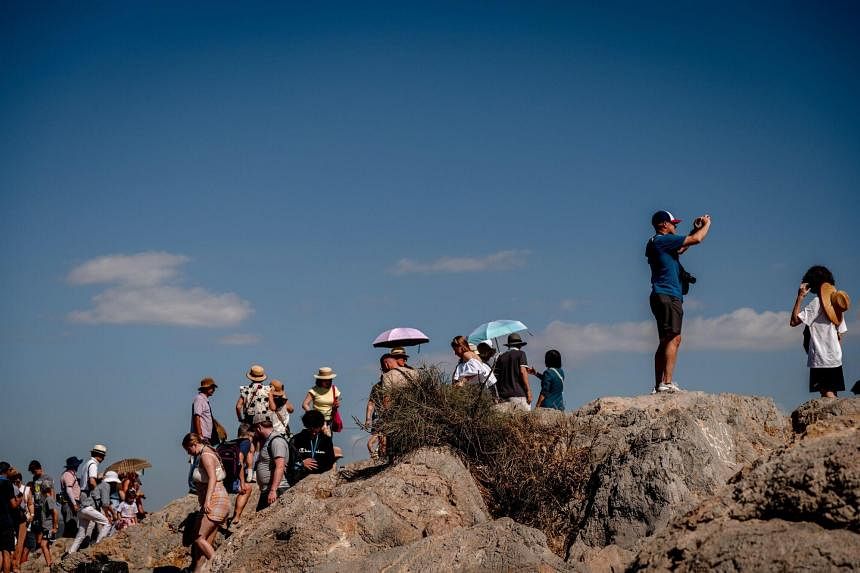Heat waves in Europe are getting more dangerous. Here’s what that means for travellers
Source: The Straits Times World News
Hooked on tourism
Climate change’s influence on where tourists are taking their vacations will have serious repercussions for some countries dependent on income from travelers.
In Greece, tourism contributes nearly 38 billion euros (S$55.3 billion) – around 20 per cent of the country’s entire economy, according to the World Travel and Tourism Council.
In Italy, where level three heat alerts — the highest warning —have recently been issued for the cities of Rome, Perugia and Palermo, tourism represents 10 per cent of the country’s economy, according to the latest figures, with one in every eight jobs linked to the industry.
Following Europe’s 2023 summer heat wave, which saw thousands flee from wildfires on the Greek island of Rhodes, there was a 7 per cent rise in expression of concerns about climate change among European travellers, according to the European Travel Commission (ETC), a nonprofit association responsible for the promotion of Europe as a travel destination.
This followed a decline in interest in southern Mediterranean vacation locations between the summers of 2022 and 2023, with cooler destinations like the Czech Republic, Bulgaria and Denmark becoming more appealing, ETC told CNN.
“Travellers are increasingly aware of extreme weather events and their potential impact on their vacations,” Mr Eduardo Santander, chief executive of ETC, told CNN, adding that in the future this could cause more travellers to visit southern Europe during spring and late fall instead of during the hotter summer months.
For now, Santander said that tourist concerns about climate change tend to be relatively short-lived. “Travellers are concerned after the summer but tend to forget about those events when booking their next holidays in spring,” he said.
‘Riddled with bites’
Extreme heat is one consequence of climate change impacting tourist hot spots across Europe. But there are others.
Warmer conditions caused by climate change are pushing populations of disease-transmitting mosquitoes into new areas of Europe, according to the European Centre for Disease Prevention and Control (ECDC).
Mr Clark, the tourist currently staying on Skyros, said that the number of mosquitoes was very high during the heat wave in early June.
“We were absolutely riddled with bites. There was no wind and even though we sprayed ourselves they still found a way,” Mr Clark told CNN. “It was definitely the low winds and high temperatures that was causing it.”
One key species of mosquito that can spread dengue, chikungunya, and Zika viruses, called Aedes albopictus, is now established in many European countries, including Greece, Italy, Portugal and Spain, according to ECDC.
Ms Andrea Ammon, ECDC director, said travel can contribute to the expansion of the species’ reach. “Increased international travel from dengue-endemic countries will also increase the risk of imported cases,” she said in a statement.
Last year, ECDC recorded 130 locally acquired cases of dengue in Europe, up from 71 cases in 2022.
There have been no locally acquired dengue cases reported in Europe so far this summer, ECDC told CNN, but based on previous summer trends they expect the first cases to be reported in the coming weeks.
One human case of West Nile virus infection, spread by the native Culex pipiens mosquito, was reported in Spain’s Seville province in March, according to ECDC. Last year, the organisation recorded 713 locally acquired human cases of West Nile virus infection in nine EU countries, resulting in 67 deaths.
The original article: belongs to The Straits Times World News .


